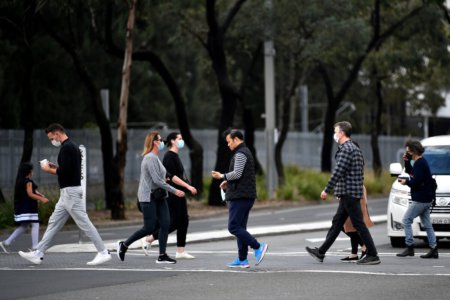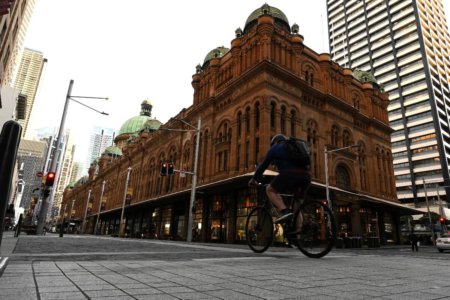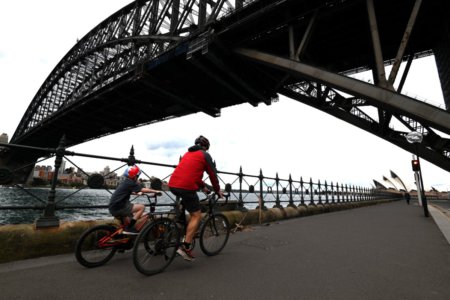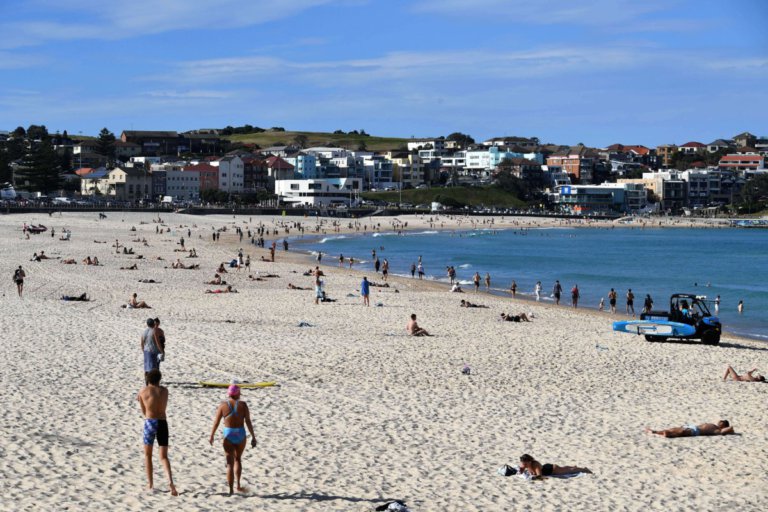
The Greater Sydney lockdown will push back any plans for international student return to Australia until August 28, at least. This lockdown was extended for four weeks on July 27 in view of the rising cases brought about by the notorious Delta variant. It will inevitably pause the New South Wales (NSW) pilot plan, which would enable 250 international students to come to Sydney per fortnight.
The Greater Sydney area includes the Blue Mountains, Central Coast, Wollongong and Shellharbour. The lockdown has most recently been extended to Newcastle and the Hunter region after 262 new active cases in NSW on August 5, including five deaths. It will last for one week, at least.
NSW Premier Gladys Berejiklian confirmed that the state would pause its pilot plan for international student return to Australia on July 13. By this point, it was already clear that a lengthy extension would push the programme’s start date into the later months of the year.
Plans to ramp up the student intake ahead of semester one next year are set for further delay. These suspicions are now confirmed as the Delta variant hits NSW hard, forcing the government to enforce a hard border shutdown once more.
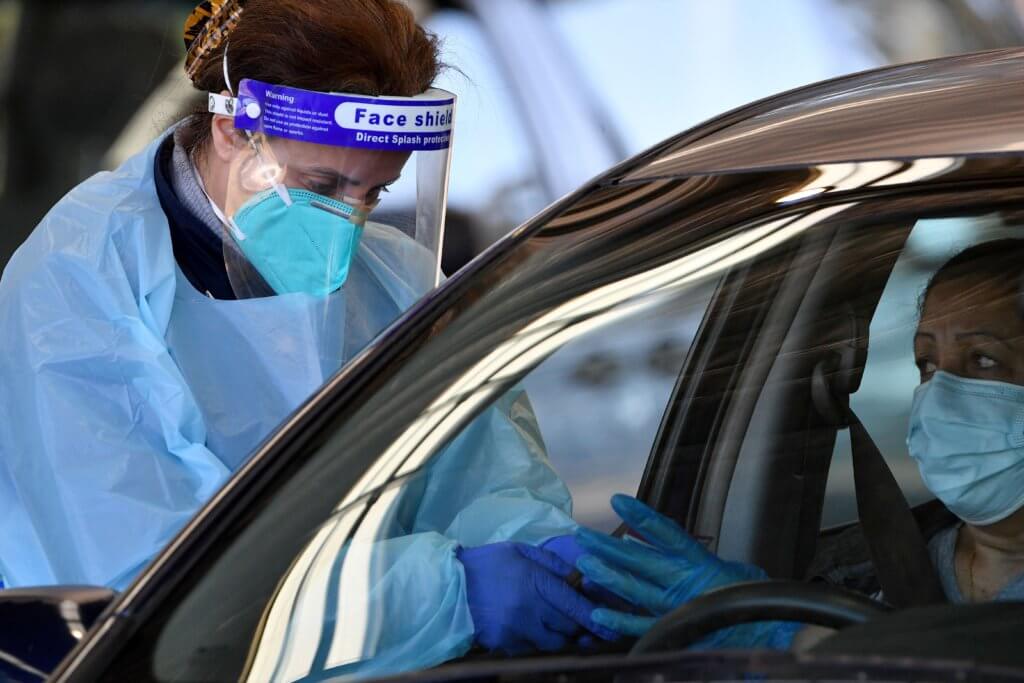
Though testing is ramping up in Greater Sydney clinics, Australia’s vaccination rate is still among the slowest among developed countries. Source: Saeed Khan/AFP
“We will look at all those issues once we exit the lockdown. Whilst we are in lockdown, our absolute obsession is to get us out of lockdown. We all know the challenge that poses but know that by working together we will get there,” she said.
Though NSW is anticipated to hit its six million COVID-19 vaccination target by the end of August, epidemiologist Fiona Stanaway believes it would do little to affect the lockdown. This number would only cover half the region’s adult population, whereas 60-70% coverage is required to avoid lockdowns. At the same time, she told ABC Australia “I don’t think at this point where we’re still three-and-a-half weeks out that anyone can really make any kind of reliable prediction.”
Universities, economy suffer as international student return to Australia paused again
While universities continue to work closely with federal governments, the numerous extensions brought about by the volatile COVID-19 situation paints a bleak picture for international student return to Australia. The country has already lost almost six billion Australian dollars due to an international enrolment dip of over 1000,000 students over the last year. International student commencements have declined a further 20% from 2020, at which point it has already dropped by 21.4%.
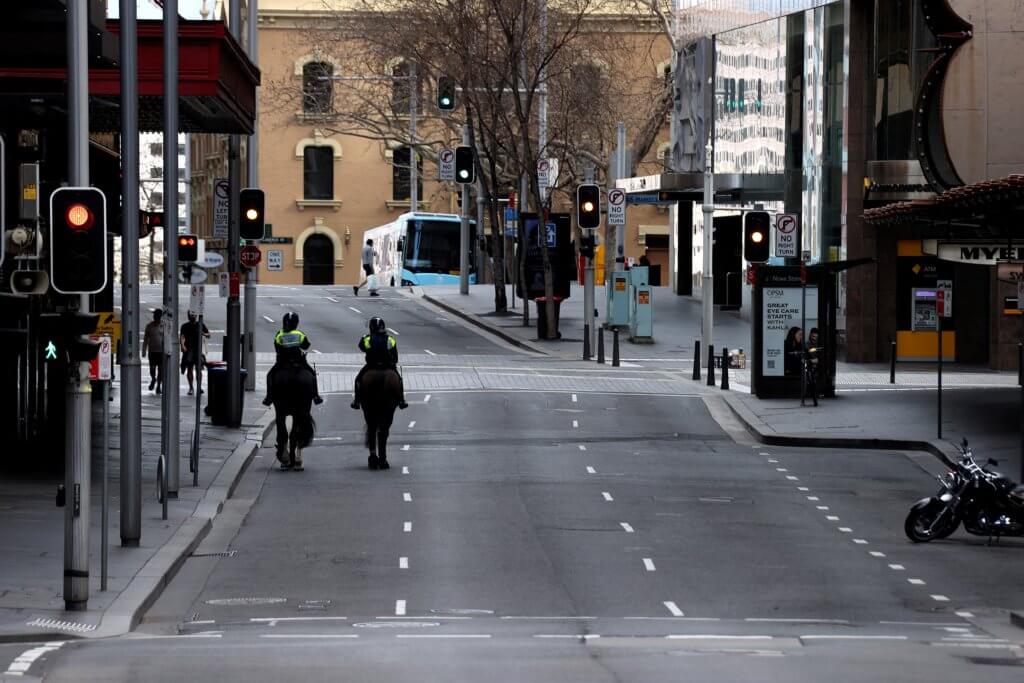
Police officers patrol the streets of Sydney’s central business district on July 31, 2021, as authorities warned against the anti-lockdown protest. Source: David Gray/AFP
Australian universities have borne the brunt of these border closures. Falling international enrollments translate to a significant revenue loss, which has driven universities to cut costs and staff. The international student education market is worth A$14 billion a year to the NSW economy, with each student spending A$60,000 on average on top of their education expenses.
With this latest lockdown, these effects may prolong into 2022 — especially since no parties can commit to a date or plan as of yet. “We’ll continue to work with states and territories on proposals to return international students when conditions allow,” said Education and Youth Minister Alan Tudge.
Prime Minister Scott Morrison has previously said that the Australian border will only open once the country vaccinates at least 80% of its population, which could take up to seven months. Experts have suggested Australia reconsider its policy of entering lockdown until cases reach zero. Instead, a phased reopening would allow international students and other priority travellers to enter, thus gradually reinvigorating the economy.








